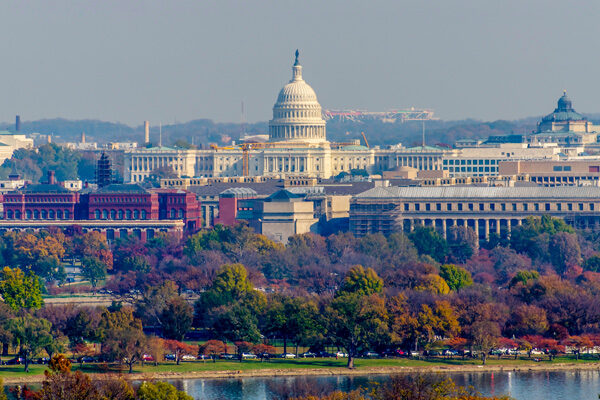Healthcare lawyers specialize in the complex landscape of healthcare law, advising hospitals, clinics, pharmaceutical companies, and individual practitioners on compliance, regulatory matters, and patient privacy issues. They play a critical role in litigation, mergers and acquisitions, and policy development within the healthcare sector. For lawyers or organizations exploring opportunities, this field offers a dynamic intersection of law and medicine, demanding analytical skills, regulatory knowledge, and a commitment to upholding the standards of healthcare practice.
Popular Cities for Healthcare Lawyers
Whether it’s engaging with policy, navigating corporate mergers, or ensuring compliance with healthcare laws, lawyers in these cities are at the forefront of the dynamic and evolving healthcare law landscape. The demand for healthcare lawyers correlates with the concentration of healthcare facilities, biotech companies, and regulatory bodies. Here are five cities where healthcare lawyers are in high demand:
Washington DC
Legal Recruiter Spotlight: Beacon Hill Legal
Beacon Hill Legal specializes in attorney placements, helping law firms and corporations find top legal talent in the Washington, DC area. We connect highly qualified attorneys with prestigious legal opportunities.
Boston
Boston, MA, is distinguished by its premier healthcare institutions and a thriving biotechnology sector, making it a hotspot for healthcare law. The city’s landscape is dotted with world-class hospitals, cutting-edge research facilities, and innovative biotech startups, creating a dynamic environment for healthcare lawyers. Legal experts here navigate a complex web of intellectual property rights, research compliance, regulatory frameworks, and intricate mergers and acquisitions.
Boston’s status as a global leader in medical research and development further emphasizes the need for specialized legal support in safeguarding discoveries and managing collaborations. Additionally, the city’s focus on healthcare policy and reform provides healthcare lawyers with opportunities to influence and interpret evolving legal standards, positioning Boston as a pivotal center for legal professionals in the healthcare domain.
Chicago
Legal Recruiter Spotlight: Atticus Recruiting Inc.
Atticus Recruiting is a Chicago-based legal recruitment agency, specializing in placing highly skilled and exceptionally well credentialed attorneys at top-tier law firms and coveted in-house positions throughout Chicago and across the Midwest.
New York City
New York City, NY, with its sprawling healthcare ecosystem featuring renowned hospitals like New York-Presbyterian and Mount Sinai, generates significant demand for healthcare lawyers. This metropolitan giant, home to some of the nation’s most advanced medical research centers and a dense network of healthcare facilities, presents a myriad of legal challenges and opportunities.
NYC healthcare lawyers deal with complex regulatory compliance, patient privacy concerns in a digital age, healthcare fraud investigations, and high-profile malpractice cases. Additionally, the city’s role as a leader in public health policy and its response to global health crises, such as the COVID-19 pandemic, further accentuates the critical need for legal expertise in navigating the healthcare sector’s evolving landscape, making NYC a vital arena for healthcare law professionals.
San Francisco
San Francisco, CA, and the surrounding Bay Area, known for its tech innovation, hosts a vibrant nexus of health tech companies and startups, creating a fertile ground for healthcare law. This region, leading in the development of digital health solutions, telemedicine platforms, and privacy technologies, demands legal expertise at the intersection of healthcare and technology.
Healthcare lawyers in San Francisco navigate novel legal challenges related to data privacy, patient rights in the digital realm, and regulatory compliance for emerging technologies. The city’s pioneering role in biotechnology and its commitment to advancing public health initiatives further amplify the demand for skilled legal professionals who can guide healthcare entities through the complex regulatory landscape, making San Francisco a key hub for healthcare law.
Employers
Competition for legal talent is fierce. Gain the advantage and hire with confidence.
Candidates
Your next big opportunity is here.
We can help you find it.
Common Lawyer Duties and Responsibilities
Healthcare lawyers are integral in ensuring that healthcare providers, organizations, and companies navigate the complex web of healthcare laws and regulations effectively. Their primary duties include:
- Regulatory Compliance: Advising clients on compliance with federal and state healthcare regulations, including the Health Insurance Portability and Accountability Act (HIPAA), the Affordable Care Act (ACA), and the Food and Drug Administration (FDA) regulations.
- Contract Negotiation and Drafting: Drafting and reviewing contracts related to healthcare, such as service agreements, provider contracts, and employment agreements, ensuring they meet legal standards and protect client interests.
- Litigation: Representing healthcare entities in legal disputes, ranging from malpractice claims to insurance and billing issues, and defending clients’ rights in court.
- Mergers and Acquisitions: Guiding healthcare organizations through the legal aspects of mergers, acquisitions, and partnerships, including due diligence and regulatory approval processes.
- Policy Development: Assisting in the development of policies and procedures that comply with healthcare laws, aiming to mitigate risk and enhance operational efficiency.
- Privacy and Data Security: Advising on patient privacy issues and data security, ensuring compliance with laws governing the handling of medical records and personal health information.
The role of a healthcare lawyer is multifaceted, requiring a deep understanding of both the legal and healthcare sectors to provide comprehensive and strategic legal guidance.
Frequently Asked Questions
The demand for healthcare lawyers is strong and continues to grow, driven by the ever-evolving nature of healthcare laws and regulations. The complexity of the healthcare industry, coupled with ongoing changes in legislation, such as those related to patient privacy, telehealth, and insurance reforms, ensures a steady need for legal expertise. Healthcare lawyers are essential for navigating these changes, making the specialty one of the more resilient and expanding areas in the legal job market.
Several key industries contribute to the demand for healthcare lawyers, including:
- Hospitals and Healthcare Systems: These entities require legal guidance on compliance, operational issues, patient care matters, and litigation.
- Pharmaceuticals and Biotech Companies: The development, approval, and marketing of drugs and medical devices bring regulatory and intellectual property challenges.
Insurance Companies: Health insurers need advice on regulatory compliance, policy drafting, and dispute resolution. - Health Tech and Digital Health Firms: Innovations in healthcare technology create new legal questions around data privacy, telehealth regulations, and partnerships.
- Government and Regulatory Bodies: Lawyers may work with or for government agencies that regulate the healthcare industry, addressing policy, compliance, and public health issues.
The earning potential for healthcare lawyers is competitive and can be higher than many other legal specialties, particularly for those with expertise in high-demand areas like regulatory compliance, intellectual property, and corporate transactions within the healthcare sector. Given the complexity and constant evolution of healthcare laws, skilled lawyers in this field are in high demand. Salaries can vary widely based on factors such as location, type of practice, and level of experience, but healthcare law often offers lucrative opportunities, especially for those in senior roles or with specialized knowledge.
The healthcare law sector has seen a shift towards more flexible working arrangements, including remote work, which has become more common due to advancements in technology and changes in workplace culture prompted by the global pandemic. While remote work offers benefits like reduced commuting time and greater flexibility, it also requires discipline to maintain work-life balance. The intensity of the workload can vary, but the nature of healthcare law, with its fast-paced environment and critical issues, may demand significant commitment, making balance challenging at times. Firms and organizations are increasingly recognizing the importance of work-life balance, implementing policies to support wellness and flexibility.
- Telehealth Expansion: The rapid growth of telehealth, especially accelerated by the pandemic, raises new legal questions around licensure, privacy, and cross-state practice, requiring healthcare lawyers to stay abreast of evolving regulations.
- Data Privacy and Security: With the increase in digital health records and technology use, there’s a heightened focus on protecting patient data, necessitating legal expertise in HIPAA compliance and cybersecurity.
- Value-Based Care: Transitioning from a fee-for-service framework to models centered on value-based care prioritizes patient outcomes and satisfaction. This change affects contractual agreements, reimbursement processes, and adherence to regulatory standards.
- Biotechnology and Pharmaceutical Innovations: Advances in biotech and pharmaceuticals, including gene therapy and personalized medicine, present novel legal challenges in intellectual property, FDA approval processes, and ethical considerations.
- Regulatory and Policy Changes: Healthcare lawyers must navigate changes in healthcare policies and regulations, influenced by political shifts and healthcare reform efforts, which can significantly impact clients.
Keeping up with these trends is crucial for healthcare lawyers to provide effective counsel and navigate the complex and dynamic landscape of healthcare law.
- Rapidly Changing Regulations: Healthcare law is subject to frequent updates and changes at both the federal and state levels. Keeping abreast of these changes and understanding their implications for clients represent ongoing challenges.
- Complex Interdisciplinary Nature: Healthcare law intersects with many areas, including medicine, ethics, and technology. Navigating these complexities requires a broad understanding beyond traditional legal analysis.
- High Stakes: Decisions and advice in healthcare law can significantly impact patient care, organizational compliance, and the financial stability of healthcare entities, adding pressure to ensure accuracy and diligence.
- Data Privacy and Security Risks: With the increase in digital health records and telehealth services, ensuring compliance with data protection laws while safeguarding patient privacy is a critical concern.
- Ethical Considerations: Healthcare lawyers often face ethical dilemmas, balancing legal obligations with the moral implications of healthcare decisions, particularly in areas like end-of-life care, reproductive rights, and access to care.
- Adaptability: Given the fast-paced and ever-changing nature of healthcare law, the ability to adapt to new regulations, technologies, and healthcare practices is essential.
Attention to Detail: Precision is crucial in navigating the complex regulatory environment and in drafting and reviewing legal documents to ensure compliance and protect clients’ interests. - Interpersonal Skills: Effective communication with a diverse range of clients, including healthcare professionals, administrators, and patients, is key. Empathy and the ability to convey complex legal concepts in an understandable way are valuable.
- Analytical Skills: The ability to analyze and interpret complex legal and regulatory information is fundamental. This includes synthesizing vast amounts of data and legal precedent to provide clear, actionable advice.
- Ethical Integrity: Healthcare law often involves sensitive issues where the right course of action may not be clear-cut. A strong ethical compass and a commitment to doing what is legally and morally right are imperative.
- Continuous Learning: A successful healthcare lawyer is committed to lifelong learning, staying informed about the latest legal developments, healthcare innovations, and ethical considerations affecting the field.
Professionals who excel in healthcare law combine these qualities and skills with a passion for the healthcare industry, contributing to the field’s dynamic and impactful nature.





